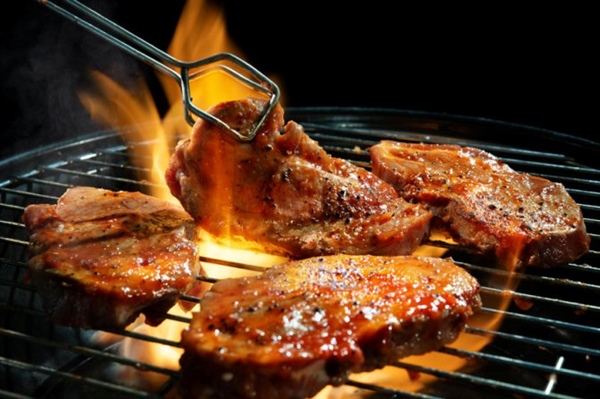Tips for Preventing House Fires While Grilling

With summer in full swing, barbecues are a frequent pastime. However, despite their fun and seasonal nature, grills pose a massive risk of a house fire, which can create the need for restoration services. Taking thorough safety precautions will help prevent your home from catching fire, saving you valuable time and money.
Knowing where to get started is critical, so here are some tips for grilling safely this summer.
Before You Grill
While you might be ready to dive into the action, before grilling, you can take a few steps to decrease the chances of a house fire:
Keep the Grill Away from Any Structures
Flames can jump fast, so first, position your grill at least 10 feet away from your house, garage, trees, branches, or any other object.
Stay on Top of Grill Maintenance
Next, remember to clean your grill and remove the grease between uses. In addition to lowering the fire risk, you'll also improve the grill's performance by thoroughly cleaning it.
Inspect the Unit
After cleaning your grill, you will want to check the propane gas to ensure there are no leaks or signs of damage on the connector. It's also recommended to check the entire grill to make sure there's no damage or defects.
Have the Right Safety Tools in Place
You should also check to make sure there is water or a fire extinguisher nearby in case something does catch fire while you're grilling.
While You Grill
When you finally get to turn on the grill, there are several steps you can take to reduce the risk of a house fire, and our expert tips include:
Close the Lid
Remember to keep the lid closed while you turn the gas. Because gas can become trapped under the cover, starting the grill may result in a large burst of fire that could cause an injury.
Keep any Vulnerable People Away from the Grill
While your food is cooking, keep any pets and children far away from the area. Stay by your grill at all times to prevent a child from touching the grill and burning him or herself.
Reduce Your Excess
Don't overload your grill and cook too much food at once — this can increase your risk of fat dripping and starting a fire. When it comes to the food options, don't overdo it with oil and sauces; pick leaner meats, and for those with high-fat content, use the grill's top section instead of over the direct flame.
Don’t Cook Under Cover
You want the grill as far from structures as possible, so remember to use your grill in an open area and avoid cooking while under a canopy or other structure, especially if they are not made from fire-resistant materials.
Don't Leave Food on the Grill for Too Long
If you need to walk away from your grill for a few minutes, remove any items that have been there for a long time. It's no secret that raw foods can catch fire from the grease dripping down; cooked items, if left for too long, are also susceptible.
Avoid Cooking in the Wind
Grilling is an amazing pastime, but doing it on a windy day can create extra challenges. While it's never recommended to grill during strong winds, if you're going to, make sure vents are pointed away from the wind, use caution when opening the lid, and adjust the damper as needed to avoid out-of-control flames reaching your home or exterior buildings.
Tips for Putting Out a Fire
If the worst-case scenario occurs and a fire has developed, it's always recommended to close the lid and see if reducing the airflow will extinguish the flame. If that's still not helping, you may need to use a fire extinguisher to help put it out as quickly as possible, and if no extinguisher is available, apply baking soda because this can neutralize the acids found in the flames.
Putting dirt and sand over the fire is another option, but you want to ensure they don't contain any other flammable materials. If you have an electric grill, unplug it as quickly as possible to remove the fuel source, and make sure you give yourself as much space as possible between you and the electrical outlet for extra safety measures.
Contact Restoration Network for Fire Damage Repair
If a recent disaster has impacted your home, contact the certified restoration experts at Restoration Network. From fire damage to general contracting, we have the tools and expertise to bring your Twin Cities home back to a comfortable and durable state.
Our team is here to answer all your questions, or if you need 24/7 emergency services, contact us online or give us a call at 612-564-0202 today.